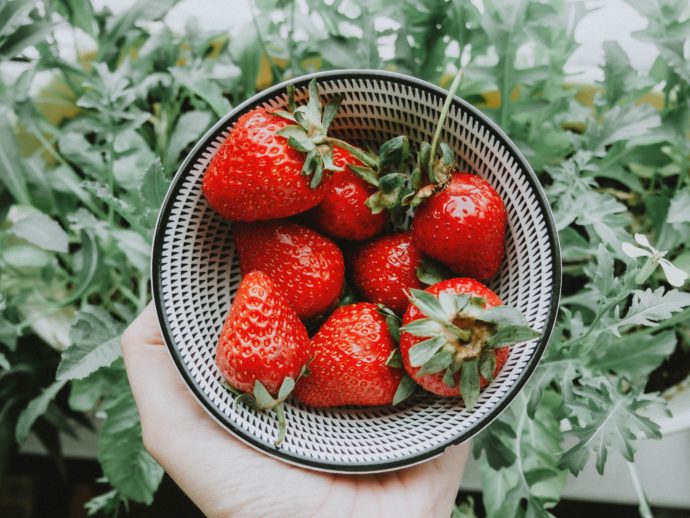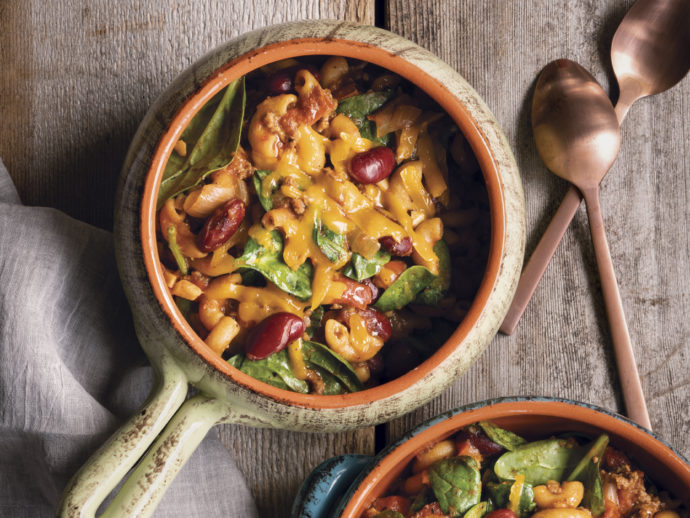
’Tis the season of abundance—of overflowing backyard gardens and farmers’ market tables. When the fresh stuff comes, it seems to come all at once, and we need to know how to capture it (and quick!) before it goes to waste.
Berries
From frozen, berries can go into muffins, fruit crisps, homemade jams, smoothies, porridge, or even savory dishes. Berries also make beautiful fruit leather, puréed with or without other fruit or sweetener and spread on dehydrator sheets.
Fast-growing greens
Puréed or not, both spinach and arugula make delicious additions to soup, wilting down so substantially that you can use up large quantities. Pesto is the greatest go-to for excess greens and so rewarding to pull out of your freezer in the winter. Its traditional basil can be supplemented or substituted entirely with any number of herbs and greens, including spinach and arugula. Freeze pesto in ice cube trays, then transfer cubes to freezer bags for longer storage.
Zucchini
Use up zucchini by the potful as the main ingredient in a silky puréed soup. Or, perhaps the easiest way to handle a profusion of zucchini in the busy heat of summer is to shred or chop and freeze them. Then on cold winter days, shredded portions can be baked into loaves or stirred into savory dishes where the strands virtually disappear; chopped pieces can be tossed into soups, chilis, pasta sauces, or stir-fries.
Cabbage
This late season Brassica is a natural candidate for fermentation, presenting the perfect opportunity to create our own probiotic-rich cultured vegetable. Consult a good recipe or instructor to learn how to make sauerkraut or kimchi. Basic sauerkraut requires nothing more than cabbage, salt, and a jar or crock of some kind. And making kimchi can be as simple as altering the sauerkraut recipe to include other vegetables and seasonings.
Tomatoes
Those with the canning equipment and know-how can fill their pantry with jars of salsa, pasta sauce, and tomatoes in their own juice. But we can easily preserve these emblematic summer fruit in other ways too. It doesn’t get easier than tossing them in the freezer whole to use later as you would canned tomatoes. Pour boiling water over frozen fruit to remove their skins. Smaller tomatoes can be halved; seasoned with herbs, garlic, and olive oil; and slow roasted in the oven before being frozen as a luscious winter ingredient.
Peppers
To enjoy in chili, roasted vegetables, or stir-fries, simply slice peppers to your desired shape and size, then freeze. For a more gourmet ingredient, peppers can be roasted using the barbecue or broiler, skin and seeds removed, then frozen sliced or whole.
Stone fruit
All those plump peaches, apricots, and plums can similarly be chopped and frozen for crisps, frozen blender treats, or smoothies, or dried with the berries into leather. They also lend themselves brilliantly to canning in a light syrup.






